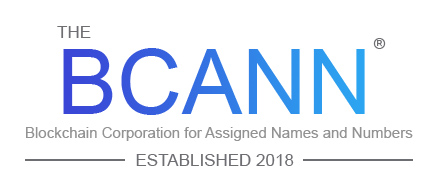
Efinity is a cross-chain NFT platform developed by Enjin and built on Polkadot. Efinity was created as the next generation blockchain for digital assets with the aim of adapting to the challenges of the world of non-fungible tokens, according to the project.
The main specialization of the Efinity project is the NFT space. With the protocol, traders and gamers can create, distribute, transfer, sell and buy NFTs. Efinity aims to remove barriers to entry into the NFT space/decentralized gaming, and to simplify user experience and digital asset governance.
Efinity Token powers the entire Efinity ecosystem, EFI aims to prioritize the generation, transfer and purchase of tokens using an inter-chain infrastructure of protocols resulting in lower transaction fees. As for incentives, rewards on PoW blockchains with NFT functionality go to miners who create/trade tokens, thereby forming a community.
One of the long-term goals of Efinity is to become a hub for both fungible and non-fungible tokens, accepting tokens from any other chain, facilitating the pricing and exchange of NFTs, increasing transaction volume, and creating network effects.
In December 2021, the project won the Polkadot parachain auction, and in March 2022, Enjin launched their flagship parachain Efinity on the Polkadot Relay Chain — a blockchain platform that provides a decentralized parachain network where people havecontrol over their data and identity.
Who Are the Founders of Efinity Token?
Efinity was developed by the Enjin team, and Maxim Blagov (CEO) and Witek Radomski (CTO) are co-founders of the company.
Maxim Blagov graduated with a degree in computer science from the University of Technology Sydney (UTS). He’s an expert in concept development and strategizing for interactive apps in the video game industry, with extensive experience in UX/UI design. In 2009, Blagov teamed up with Witek Radomski to launch Enjin, devoting 14 years to developing the ecosystem.
As for Witek Radomski, he’s also one of the first members of the Enjin team who spearheaded the integration of Enjin Coin (ENJ). Radomski is a hard-working professional with 13 years of experience; he’s also known as the creator of the ERC-1155 token standard.
And another player is Caleb Applegate, Coo at Enjin and former COO of Mineplex, the global Minecraft gaming service.
In 2019, Enjin signed a partnership with Microsoft, and in 2021 enlisted the support of investors like Hashed, Crypto.com Capital, Digital Finance Group, DeFi Alliance and Hypersphere.
What Makes Efinity Token Unique?
Efinity (EFI) is endowed with a number of unique features that distinguish the project from competitive blockchain platforms, for instance: fast transactions and low fees, the use of so-called fuel tanks, support for contracts with multiple signatures and the implementation of Efinity Swap technology.
Key advantages of Efinity:
Fuel tanks (aka special discrete bills). Contents of these wallets are used solely to pay transaction fees, while companies and developers get the opportunity to subsidize client expenses, while EFI tokens are sent to the fuel tank.
Fast transactions and low fees. Efinity (EFI) is capable of processing 700 to 1000 transactions per second. The transaction confirmation speed is 6 seconds and does not require the end user to have a blockchain wallet. The speed of the process ensures prompt response times.
Efinity Swap. The technology improves the efficiency of the paratoken exchange process. How does it work: the automatic conversion mechanism allows the upgrading of one paratoken to another for various purposes, greatly simplifying the swaps that are available through buy / sell orders.
The global mission of the Efinity project is to shape the crypto future, where NFTs will become something familiar and integral for any user, where rewards go not only to miners, but to all network participants: developers, traders, ordinary token holders, where all transactions proceed fast and with low fees.
Related Pages:
Read about Enjin Coin (ENJ).
The latest data about Polkadot (DOT).
Take a deep dive into Efinity (EFI) with CMC Alexandria.
What are non-fungible tokens (NFTs)? Have a look at our CMC glossary.
What are parachains? Click here and find out.
How Many Efinity Token (EFI) Coins Are There in Circulation?
EFI is the utility paratoken of the Efinity network with a maximum supply of 2,000,000,000 coins.
EFI use cases:
With EFI, users can pay transaction fees, purchase digital assets, vote in governance events, reward network members, and facilitate liquidity.
Tokens are distributed as follows:
20% to investors (+ seed rounds and public sales);
30% to the team (10%) and the company (20%);
15% to staking pools;
35% to the ecosystem.
The functions of the EFI token include: transaction fees (transaction fee is set and distributed depending on the type of transaction), network fees (orders placed deduct 2.5% fee), governance, fuel tanks (users can stake EFI for a fixed period, reducing the cost of transactions), JumpNet (users with EFI tokens trade in JumpNet for free), placing orders on the trading platform, creating an account on the network.
Assets on Efinity can be exchanged for NFTs and digital tokens, cryptocurrency on the platform can also be sold through decentralized mechanisms.
How Is the Efinity Token Network Secured?
The Efinity protocol is part of the Polkadot parachain ecosystem, leveraging the scalability and security of Polkadot. Efinity blockchain is a parachain that runs on Polkadot Relay Chain validators for its consensus. Parachains use the computational power of the relay chain, which is responsible for the interconnection and protection of the network. Polkadot is in charge of overall network security by connecting validators to parachains. Efinity’s collator nodes process transactions, the network pays out EFI tokens from Collator Pool.
In addition, the Efinity platform and Efinity Token (EFI) were created according to the ERC-20 token standard, following the same security protocol as the Ethereum blockchain, namely a proof-of-work (PoW) consensus mechanism.
The Efinity Token (EFI) was developed by Enjin, and in 2020, Enjin launched a bug bounty program via HackerOne, an information security company with access to the best ethical hackers in the world. With HackerOne, customers can stress test systems, find bugs, and fix vulnerabilities.


